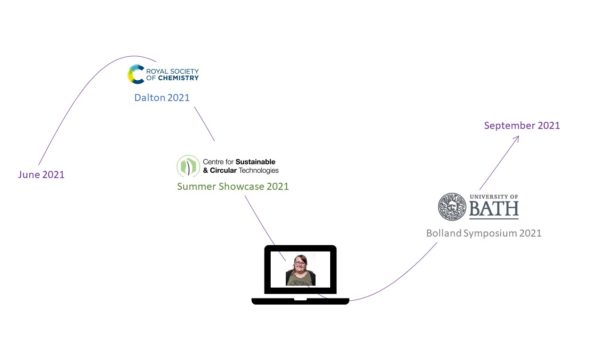The following blog is written by Tristan Smith.
CSCT students Felix (Cohort 2015), Sonia (Cohort 14), Tristan (Cohort 13) and alumnus Anyela (Cohort 10) attended a two day training workshop run by the BBSRC NIBB Networks. It was an opportunity for current students, post-doc and early career researchers to learn about the jobs and careers that are available in Industrial Biotechnology (IB). But also, that many companies that use IB aren’t immediately obvious and there is a large drive to create connections with these unknown stakeholders and academia for future collaborations. Instead of reviewing all that was discussed over the two days, I will try and distil it down to a few key messages:
- Industrial Biotechnology is one of the oldest technologies in human activity and as such has been applied in a wide range of fields from food production to the manufacture of explosives. The take home message of many talks was that IB is not an industrial sector but an enabling technology that is allowing the development of new sustainable technologies, and therefore when looking for careers as a biotechnologist you are unlikely to find yourself working for an enzyme production company (although those jobs exist), but as a member of a small team in a much larger setting helping to apply IB to their processes. Many of these companies do not advertise the fact that they use IB, and that connections made through networks like the NIBs, KTN-UK are vital to finding jobs.
- Communication! A successful industrial biotechnologist needs to be a master linguist, able to speak the languages of engineering through to corporate finance. Even if your role is developing novel organism at a purely molecular biology lab, you might be the only such individual or part of a very small team in that company. Therefore, you will have to understand every stage of your product's scale-up at the engineering level. Engineers and technical staff will need to be able to understand your process so that it can be up-scaled and developed further. The sales team need to be able to understand and sell the benefits of your technology to the customer. The finance team need to understand the cost savings or profit potential of every material or piece of equipment before the company purchase it. Whilst an industrial biotechnologist must be key team player, all these challenges creates new opportunities for specialist process bioengineers, technical sales staff and other jobs that are improved by having a scientist in these roles.
- Data! Data! Data! Modern DNA sequencing and computer technologies means that the creation of new data is occurring at an unmanageable rate, and that there is shortage of individuals with data driven research capabilities. Bioinformaticians or computational scientist, with the ability to process and use this every expanding pool of information are going to be more sought after in the future. The demand is so high that it has been fed back into the funding bodies who are now starting specific degrees, but that means anyone who has the skills now, before all these new training degrees bear fruit will be in high demand.
I hope that this was useful, I think we all left feeling much more hopeful about the range of potential jobs on offer outside of academia. One great aspect was a range of talks from companies ranging in the size from small start-ups such as Oxford Biotrans to large multinational corporations such as Croda, who all rely on IB but because of the size and scope of these companies, the working environments and cultures are as different between themselves as industry is to academia. The point being that if you want to work in industry there is likely an environment that will suit your skills and personality.
Tristan is in his third year in the CSCT working towards his PhD on 'Sustainable production of 2-phenylethanol from Metschnikowia pulcherrima' with Dr Daniel Henk and Dr Chris Chuck.
Responses



I love it. Excellent post! Thank you for sharing this.